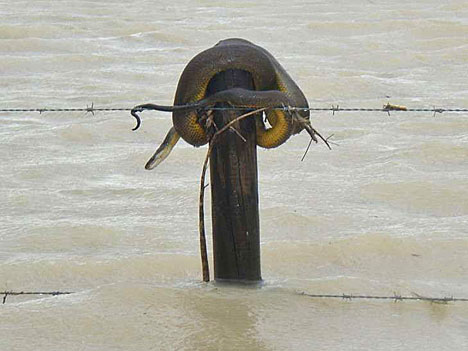Flood coverage probed
 Australia’s flood insurance sector has failed to protect policyholders, a new inquiry reveals.
Australia’s flood insurance sector has failed to protect policyholders, a new inquiry reveals.
The House Standing Committee on Economics has released its report examining insurers' handling of claims following the 2022 floods.
The report, titled ‘Flood failure to future fairness’, outlines extensive shortcomings and proposes 86 reforms to enhance accountability and performance in times of natural disasters.
Committee Chair Dr Daniel Mulino MP described the findings as a “collective failure by insurers to meet their obligations to policyholders after the 2022 floods”.
He explained that the changes aim to create “a fairer system in the future”.
The inquiry identified widespread issues, including inconsistent decision-making that resulted in different outcomes for neighbours affected by the same floods.
Prolonged delays further caused “emotional, mental health, and financial strain”, with many unable to return home over two years later. Insurers’ initial compensation offers were also frequently too low, particularly in cash settlements.
Key recommendations aim to increase clarity and efficiency across the sector.
These include registering the General Insurance Code of Practice with ASIC and making it enforceable through contracts; standardising terms such as “rainfall runoff” and “storm surge” in legislation; and ensuring insurers cannot deny claims based solely on expert reports lacking clear damage causation.
Insurers would also be required to offer clear guidance on maintenance obligations upfront, assume liability when maintenance is rare or costly, and decide claims within 12 months or accept them in full.
Furthermore, the report says insurers must submit quarterly claims performance data to ASIC and report monthly after disasters, with results made public by brand and insurer.
The report calls for better temporary accommodation policies, noting current maximums often fall short of rebuild timelines.
Dr Mulino said insurers should cover temporary accommodation costs until repairs are completed.
Insurers would be required to give at least three months’ notice of any changes to accommodation provisions.
Addressing coverage gaps for pre-existing, hidden damage - such as building stumps - was another focal point.
Dr Mulino said many policyholders pay premiums for years without knowing the state of stumps, making post-flood claim decisions seem like a “lottery”.
He recommended insurers take more responsibility in these cases, while acknowledging they should not bear all risks of pre-existing damage.
The report also addressed Australia’s growing uninsurability crisis, proposing government intervention for properties at extreme risk of flooding.
Suggested measures include clear flood risk disclosure during property transactions, discouraging bank financing for high-risk developments, enhancing flood resilience through updated building codes, and incentivising premium reductions following mitigation work.
Expanding buyback and resilience programs for the most vulnerable properties was also recommended.
A copy of the report can be obtained from the inquiry website.







 Print
Print


